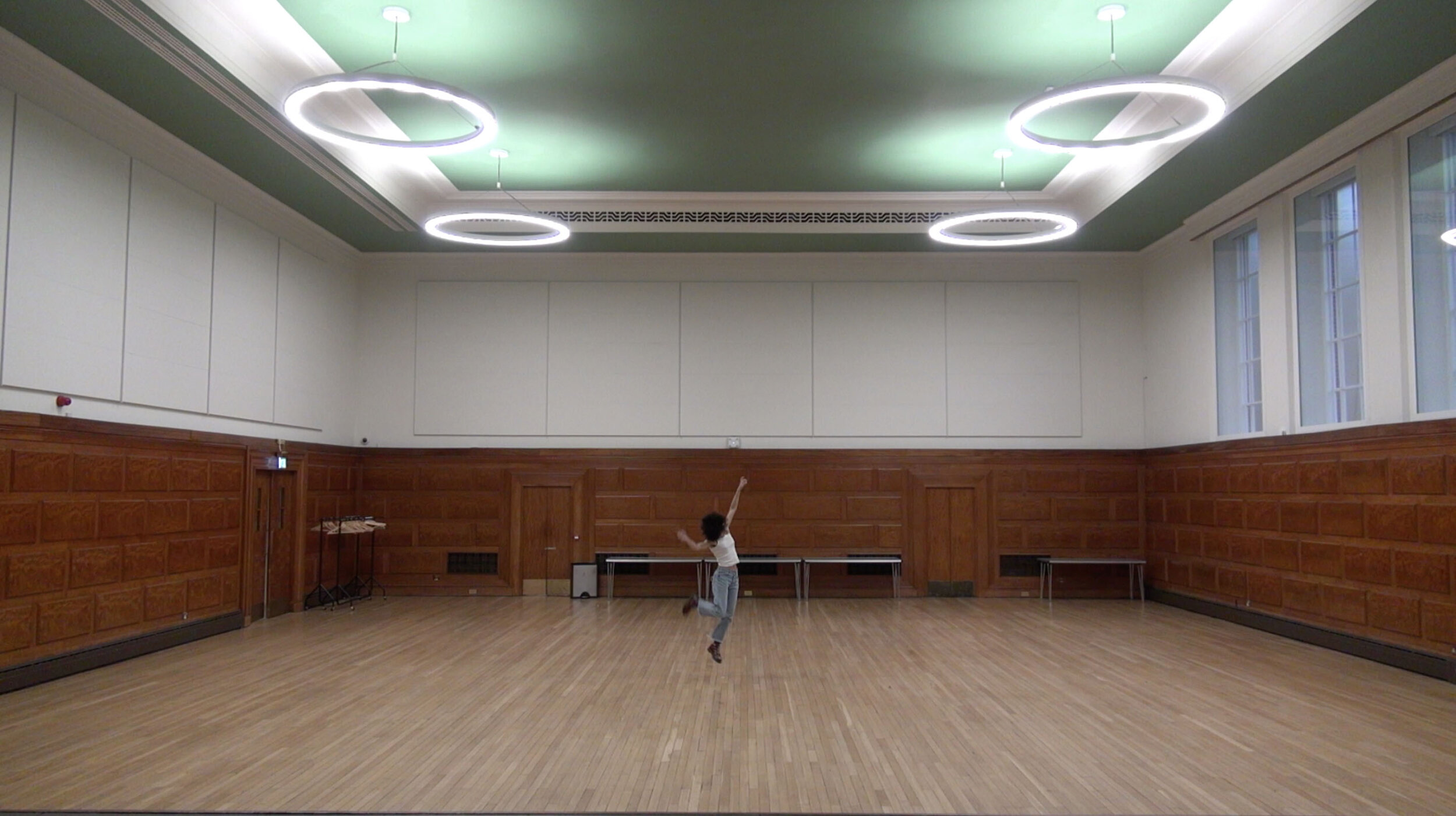Interview
‘Rene Matic’
Floorr Magazine
An interview with artist Rene Matić, published by Floorr Magazine on 21 May 2021.
The interview focused on their recent solo show, Born British, Die British, at VITRINE Gallery, London (11 October 2020 — 17 January 2021). In which, Matić had the titular words tattooed across their back by Lal Hardy, a well-known figure from the punk and skinhead scene since 1979.
As well as their new permanant commission for Bold Tendencies, no more quick, quick, slow (2021). A black and white flag that speaks to the history of race relations in the United Kingdom, the BLM protsets of 2020 and the power of music and dance to overcome racism and oppression.

Extract —
Charlie Mills: Your recent solo show at VITRINE Gallery, London, was called Born British, Die British. For the exhibition you received the eponymous tattoo across your back from Lal Hardy, a well-known figure from the punk and skinhead scene since 1979. This single gesture unfurls a complex history and set of myths concerning not only the skinhead movement and its shifting relationship to race but of ‘Britishness’ in general. What did you hope to discover or reveal through this process?
Rene Matić: For me, this work is not about discovery or revelation. It speaks of the reality of hailing from the Black British diaspora, connoting the historical violence enacted on Black and Brown bodies in the name of ‘Great’ Britain, both historically and today.
The image of a middle-aged white man inscribing Britishness on the body of a 23-year-old, mixed-race, non-binary femme reads like an inauguration or an initiation. By reclaiming this body marking as my own, I signal and celebrate my skin as a subversive surface that undermines what it means to be born British and to die British in modern-day, multi-cultural Britain. I exist as a glitch and this work mocks those who refuse to embrace the error. It throws shade, it’s sarcastic, it’s ironic, it’s rude… but its right.
CM: You speak frequently about ‘irreducibility’ in your work, whether that is between acts of celebration and violence, recognition and disavowal, or your own lived experience as a queer mixed-race artist. Is it important that your works remain open ended — that a level of discomfort or cognitive dissonance remains in their reception?
RM: Who am I to attempt to define any kind of truth other than my own in this world? To leave room is so integral to my survival and in turn my practice. The cognitive dissonance is not a choice, it is – again – reality. Why would I attempt to straighten anything out when there isn’t anything straight about me lmao.
I’m not talking about letting things be, because of course I am here as an explorer. But if I was to conclude my explorations then it would be to assume my journey has an end. I am terrible at articulating this through words because the whole thing really is just all poetry and using the abstraction of poetry to convey the abstraction of one’s experiences.As Audrey Lorde writes in ‘Poetry Is Not a Luxury’ (1985): “We can train ourselves to respect our feelings, and to discipline (transpose) them into a language that matches those feelings so they can be shared. And where that language does not yet exist, it is our poetry which helps to fashion it. Poetry is not only dream or vision, it is the skeleton architecture of our lives”.
I suppose my answer is that the works remain open because I do. Of course I do - I’m 23.
CM: Discord, conflict and tragedy are subjects never far away in your practice. Yet it is love, joy and happiness that shine through. How has love been an inspiration to you, and do you see it as a recurring expression in your work?
RM: I suppose really, when I talk about ‘leaving room’ that is where the love lives. When I first started as a practicing artist I thought I was ok that the work would make me ill. Until I realised that the work could be the respite. I was so angry at my parents for bringing brown babies into this world until I realised that I was a product of love and a love that as Kathleen Collins writes about in ‘whatever happened to interracial love?’ was “the love of two human beings who mate in spite of or because of or instead of or after the fact of.” It opened up my world to trying to understand evil but without giving it power. Looking for the child in evil. Tony Morrison says that “evil is compelling, goodness lurks backstage… Evil has vivid speech, goodness bites it’s tongue.” We have to pay attention to what we are foregrounding and perpetuation. Goodness is the goal.
 ︎︎︎
︎︎︎